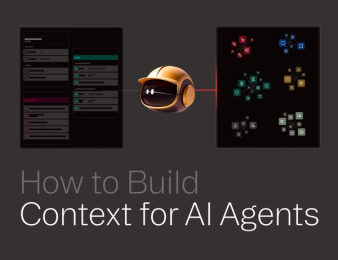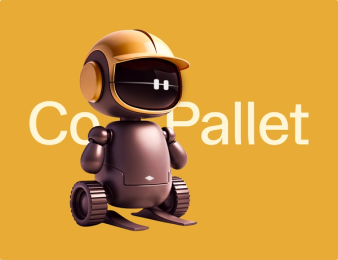Introducing Deep Reasoning for Multi-Step Logistics Automation

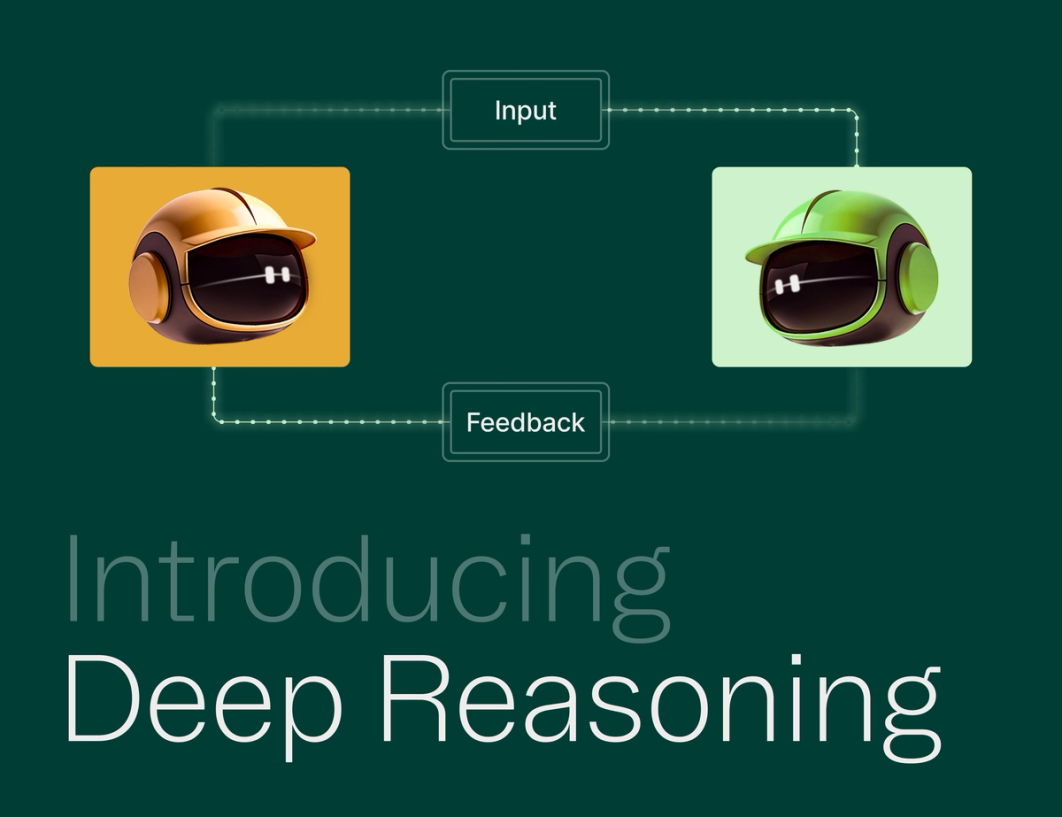
Traditional automation systems have relied on rigid, rule-based automation that requires endless business logic configuration, making deployment slow and brittle. Deep Reasoning is a better way for CoPallet to execute multi-step workflows based on following a plain-English SOP. CoPallet will plan each step, reference external data sources, and check its own work before executing, just like your most experienced freight operator.
The Problem with Logistics Automation
Rule-based flowcharts
Most logistics platforms today operate like elaborate flowcharts. They follow deterministic paths: if this happens, do that; if that condition is met, execute this function. As complexity increases, these systems become brittle and cumbersome to maintain.
- Complex multi-step workflows are slow and expensive to deploy, which means many edge cases are still handled manually
- New situations require constant updating
- Fuzzy logic or judgement calls don’t fit neatly into a flowchart
The result? Development teams spend countless hours building custom business logic that doesn’t deliver on the promise of automation.
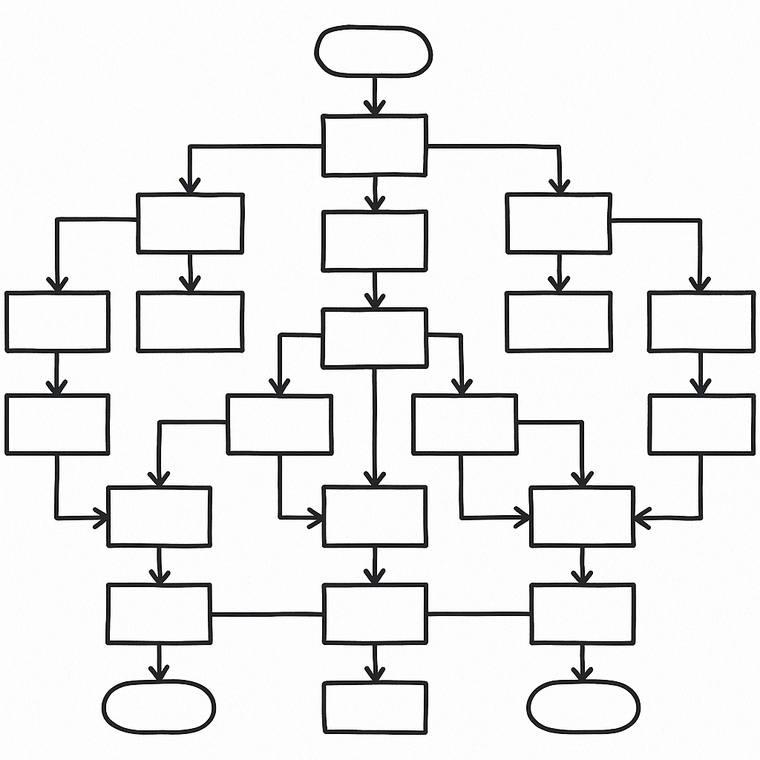
One-shot AI reasoning
One-shot AI reasoning is a technique where, given some input , an LLM is asked to find a solution without chain of thought, self-reflection, or tool use. This works for simple tasks, but is unreliable for complex, multi-step workflows.
Suppose you had an 18-step SOP for processing an incoming load: Read an incoming email request, run a credit check, find origin/destination appointment hours, determine accessorials, etc. A human operator would struggle to reliably accomplish all these steps at once without mentally planning the work and splitting it into discrete steps. The same is true for one-shot AI reasoning. One-shot AI reasoning is not reliable enough to do every step accurately. When it fails, it’s also not possible to trace where the mistake occurred. To make AI reasoning support our use cases, we developed Deep Reasoning.
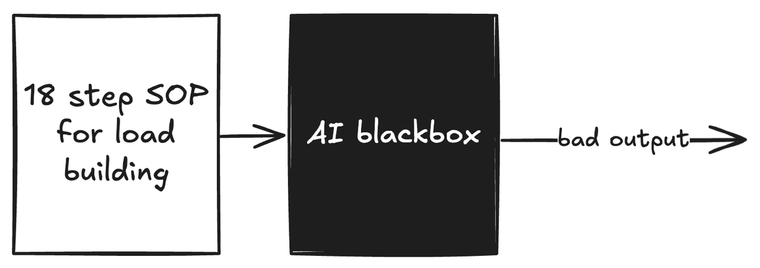
How CoPallet Deep Reasoning Works
CoPallet Deep Reasoning introduces two complementary AI models that work together to generate and judge outputs over multiple feedback cycles.
Generator: Your AI Operations Specialist
The Generator functions like skilled logistics coordinators who understand your business processes deeply. Given a set of rules to describe what it needs to accomplish, the Generator will:
- Analyze the current situation using real-time data
- Determine which tools and resources are needed
- Plan the necessary steps to achieve the desired outcome
Judge: Your AI Quality Controller
The Judge acts as a supervisor, continuously evaluating whether the Generator's work meets the required standards.
- If the Judge approves the Generator’s work, then the output is executed
- If the Judge rejects the Generator’s work, it provides feedback for the Generator to try again
- If the Judge rejects the Generator’s work after multiple iterations, then the task is escalated to a human in the loop to resolve.
As CoPallet performs the same type of task repeatedly and learns how to successfully perform it, the number of iterations it takes decreases.
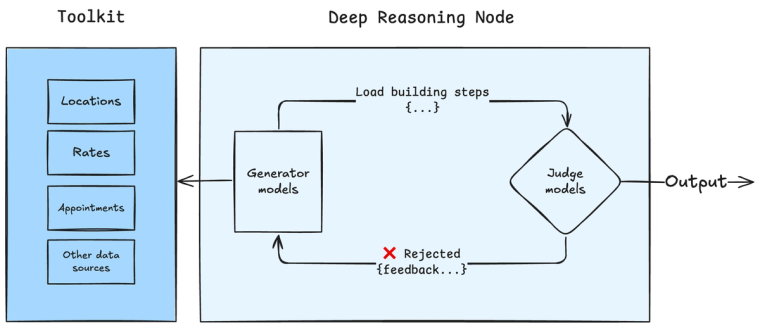
Real-life example: Building a load
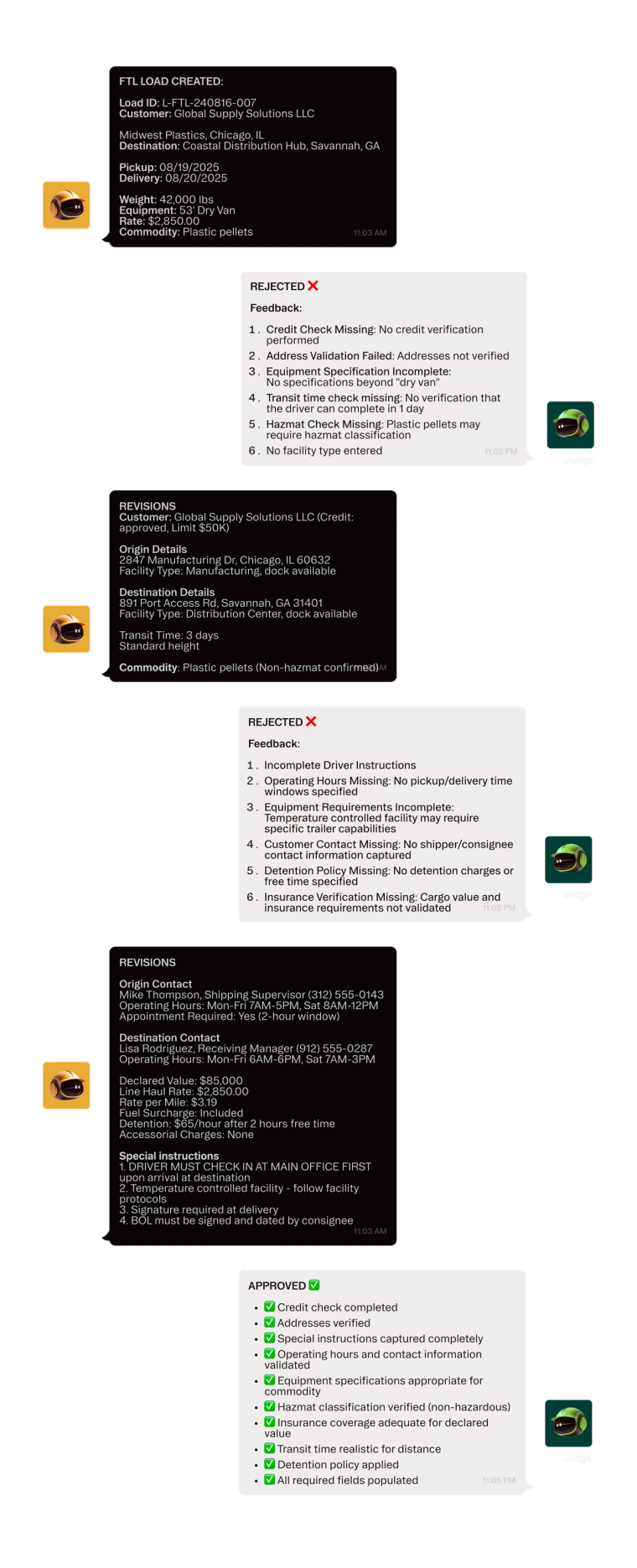
Multi-Step Precision at Scale
Deep Reasoning enables automation of complex workflows that were previously cumbersome or unreliable to handle with rule-based systems or one-shot AI processing.
For logistics operators managing hundreds of processes and countless edge cases, Deep Reasoning delivers multi-step precision at enterprise scale. Whether you're looking to automate intricate workflows like shipment processing, dynamic quoting, real-time visibility, or complex invoicing, connect with an AI deployment strategist to see CoPallet in action.

